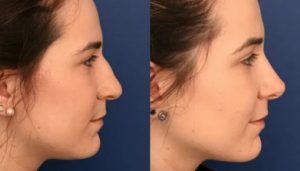
source – Clinical Trial Vanguard
The global clinical research landscape is undergoing significant transformation in 2025, with advances in trial design, neurology, and allergy therapies shaping the next era of medical innovation. Updates reported by Clinical Trial Vanguard illustrate how adaptive clinical methodologies, promising seizure treatments, and pioneering allergy solutions are paving the way for more efficient, patient-centered progress.
A key development in trial design is the impact of ICH E20, a new guideline that is redefining adaptive clinical trials. Adaptive designs allow researchers to modify certain aspects of a trial—such as dosing, sample size, or patient stratification—based on interim data, all while maintaining statistical validity. This flexibility enhances efficiency, reduces costs, and can bring therapies to patients faster. ICH E20 provides a global framework to harmonize these practices, encouraging broader adoption and consistency across regulatory bodies. By enabling more dynamic and responsive trials, the guideline marks a turning point in how studies are planned and executed worldwide (source – Clinical Trial Vanguard).
In neurology, Rapport Therapeutics is preparing to announce results from its Phase 2a trial of RAP-219 for the treatment of seizures. RAP-219 is a precision medicine candidate designed to selectively target neurological pathways involved in seizure activity. If successful, it could provide an alternative to current anti-seizure medications, many of which carry significant side effects or limited effectiveness. The trial represents not just an advance for Rapport but also a potential breakthrough for patients with epilepsy or seizure disorders who urgently need safer, more effective options. The upcoming results are being closely watched as a milestone in neurological drug development (source – Clinical Trial Vanguard).
Meanwhile, in allergy care, Gelteq has announced the start of a preclinical trial for its pioneering allergy gel. This novel therapy is designed to provide localized relief while potentially reducing systemic side effects associated with traditional allergy medications. The gel formulation represents a new approach to managing allergic reactions, particularly for patients seeking convenient and non-invasive treatment options. Though still in early development, the preclinical trial marks the first step toward translating this innovative concept into a viable therapy for widespread allergic conditions (source – Clinical Trial Vanguard).
Together, these updates highlight three key dynamics driving clinical progress in 2025:
- Innovation in trial design – ICH E20’s adaptive framework promises faster, more efficient pathways to drug approval.
- Neurology breakthroughs – Rapport’s RAP-219 trial could reshape seizure management through targeted precision medicine.
- Novel allergy treatments – Gelteq’s allergy gel reflects the push for patient-friendly therapeutic alternatives.
As adaptive designs streamline research, and novel therapies progress from concept to clinic, patients stand to benefit from faster access to safer, more effective treatments. These milestones demonstrate how collaboration, science, and regulatory evolution are converging to redefine the future of clinical trials.
Published by Clinical Trial Vanguard
For continuous updates on the latest clinical trial advancements and research breakthroughs, visit https://www.clinicaltrialvanguard.com/


